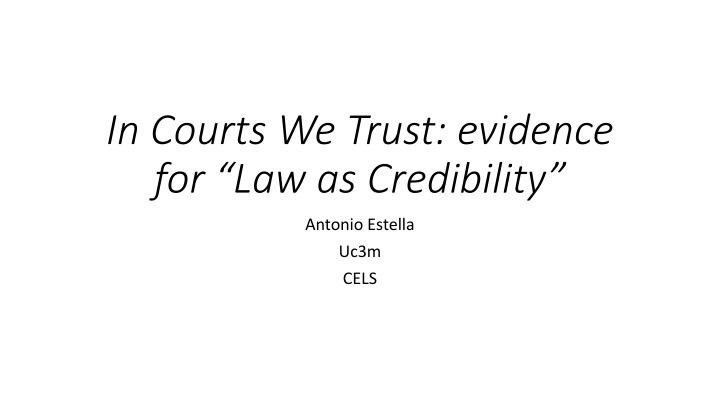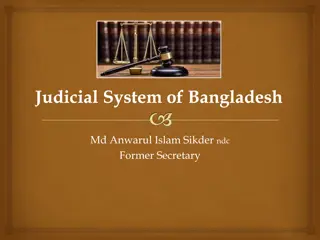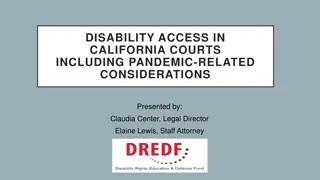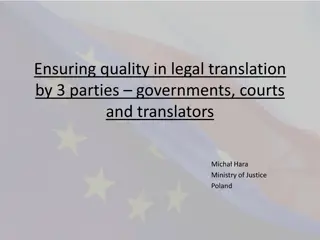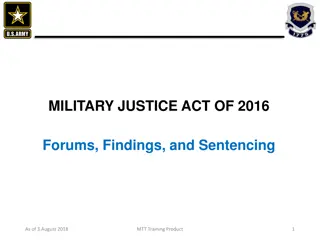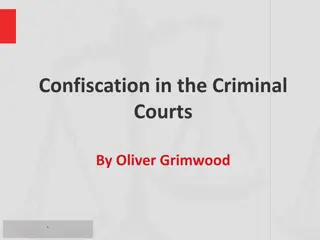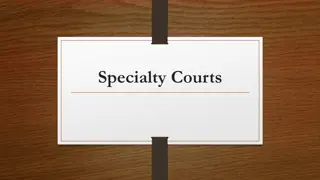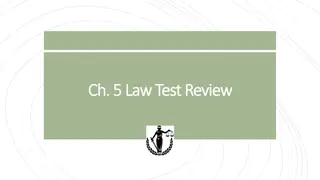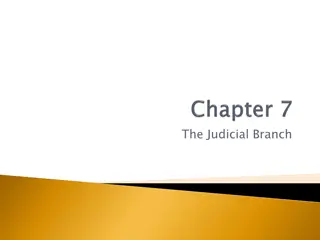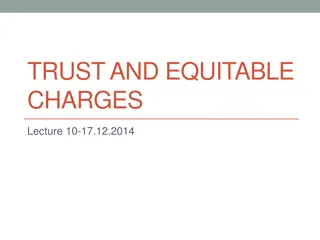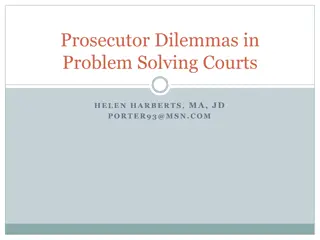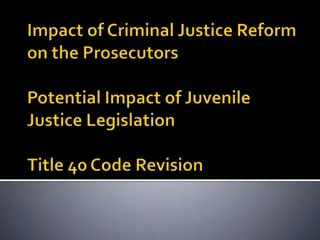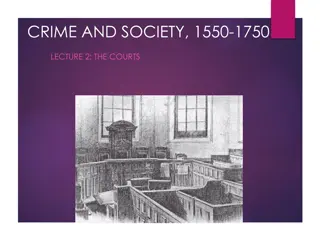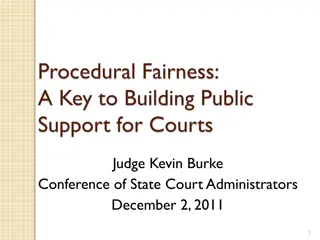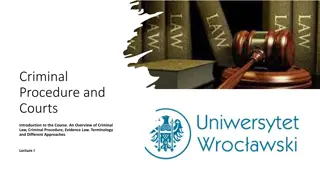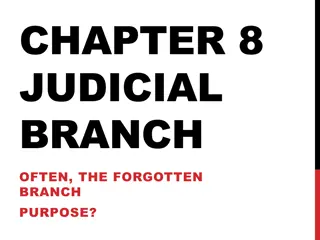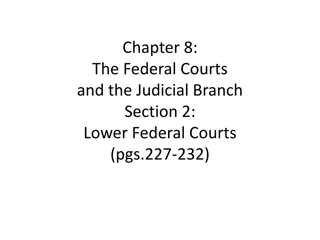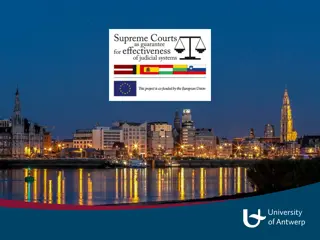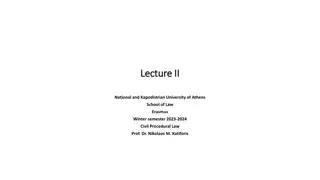Trust Dynamics in Political Relationships: Evidence and Implications
Exploring the intricate dynamics of trust between Principals and Agents in political relationships, this study delves into the implications of mistrust and the shift in trust levels over time. Utilizing surveys on political trust and data on trust in governmental branches, the analysis sheds light on trust trends in executive, legislative, and international entities. The findings highlight the evolving nature of trust in political actors, pointing towards potential challenges in governance.
Download Presentation

Please find below an Image/Link to download the presentation.
The content on the website is provided AS IS for your information and personal use only. It may not be sold, licensed, or shared on other websites without obtaining consent from the author.If you encounter any issues during the download, it is possible that the publisher has removed the file from their server.
You are allowed to download the files provided on this website for personal or commercial use, subject to the condition that they are used lawfully. All files are the property of their respective owners.
The content on the website is provided AS IS for your information and personal use only. It may not be sold, licensed, or shared on other websites without obtaining consent from the author.
E N D
Presentation Transcript
In Courts We Trust: evidence for Law as Credibility Antonio Estella Uc3m CELS
The starting point: the trust in political actors structure Look at the following structure: P (the principal) delegates power to A (the Agent) P->A From the moment in which P->A, P starts mistrusting A: P (-t) A Where P is the Principal, A is the Agent, and t denotes lack of trust in A
There are many ways to illustrate the previous structure. We could discuss it theoretically: there is a large literature on the complex trust relationships between the Principal and the Agent (see for example Schelling, 1982) However, I will not pursue this approach here. Instead, I will use surveys on political trust to illustrate the point
Surveys on Political Trust World Values Survey Latino-barometer Eurobarometer
Evidence for executive and legislative branches of government on trust: WVS TRUST IN GOVERNMENT (1990-2020) TRUST IN PARLIAMENT (1981-2020) 70 70 60 60 50 50 40 40 30 30 20 20 10 10 0 0 WAVE 1990- 1994 WAVE 1995- 1999 WAVE 2000- 2004 WAVE 2005- 2009 WAVE 2010- 2014 WAVE 2017- 2020 WAVE 1981- 84 WAVE 1990- 1994 WAVE 1995- 1999 WAVE 2000- 2004 WAVE 2005- 2009 WAVE 2010- 2014 WAVE 2017- 2020 TRUST NO TRUST TRUST NO TRUST
Evidence for executive and legislative branches of government on trust: Latino-barometer TRUST IN GOVERNMENT 1996-2020 TRUST IN CONGRESS 1996-2018 80 90 80 70 70 60 60 50 50 40 40 30 30 20 20 10 10 0 0 1996 2002 2003 2004 2005 2006 2007 2008 2009 2010 2011 2013 2015 2016 2017 2018 2020 CONFIANZA NO COFIANZA CONFIANZA NO CONFIANZA
Evidence for EU, national governments and national parliaments: Eurobarometer 96 (2021)
Conclusion Houston, we have a problem This problem has been aggravated in the last 15 years In particular regional contexts, like Latin-America, this problem is particularly acute.
The question is: how does Law take hold of this? On the basis of this context, I have started a reflection on what I call Law as Credibility Law as Credibility is a Theory of Law that argues that the main function that Law is called to perform is to give credibility to political commitments Political promises are encapsulated in law to give more credibility to them
Example (Estella, 2008) Presidential Term Limits -> In the Constitution in the US (22nd amendment) No person shall be elected to the office of the President more than twice, and no person who has held the office of President, or acted as President, for more than two years of a term to which some other person was elected President shall be elected to the office of the President more than once -> Not in the Constitution in Spain Aznar and Zapatero made this political commitment as a way to clean Spanish politics. All reasons to believe that they would not honour their commitment until they appointed a successor (Rajoy, Rubalcaba). What gave credibility to their promises was publicly appointing a successor.
Proposition 1 All normative systems (systems based in rules: morals, religion, politics ) must be seen in terms of credibility
Proposition 2 For Law as Credibility to work, law should be the normative system that renders more credibility to commitments compared to any other normative system, so that: Lc>ONSc Where: Law as Credibility is superior to Other Normative Systems as a credibility device
Proposition 3 If 2) is the case, then Law should be preferred to any other normative system to give credibility to commitments
Proposition 4 There is a main difference between Law as a Credibility device compared to any other normative system: this is that for Law, rigidity always has to be superior, be it marginally, to flexibility. So Lc= R>F Where Law as Credibility implies that rigidity is always higher than flexibility
Proposition 5 Internal condition: for a particular norm to give credibility to a particular commitment, law (that particular norm) has to be an equilibrium between R and F (in Nash terms). Therefore, it is not always the case that the most rigid norm is the most credible one. Instead, only norms that are an equilibrium yield credibility, so that: EXAMPLE: Weimar s Constitutional provision on civil servants right to access personal files (Vinx, 2020: 65) Eternity clauses
Proposition 6 External condition: for a legal system to yield credibility, two external conditions to the structure of the norm have to be respected: 1) People have to trust Courts 2) The polity has to be vigilant as to the maintenance of the role of law as credibility
I leave 2 for a different discussion I focus on 1
So here we have some good news: WVS TRUST IN COURTS (1981-2020) 70 60 50 40 30 20 10 0 WAVE 1981-84 WAVE 1990-1994 WAVE 1995-1999 WAVE 2005-2009 WAVE 2010-2014 WAVE 2017-2020 TRUST NO TRUST
BUT: less good news in specific regional contexts TRUST IN COURTS 1996-2020 80 70 60 50 40 30 20 10 0 1996 1997 1998 2000 2001 2002 2003 2004 2005 2006 2007 2008 2009 2010 2011 2013 2015 2016 2017 2018 2020 TRUST NO TRUST
Some conclusions Can Law as Credibility work with this level of trust in courts and in political actors? Probably the answer is NO, we need more trust in the three of them for L as C to work Is there a compensation effect between trust in Courts and trust in political actors? Maybe there is, and if trust levels in courts went up, then we would see a raise in trust in political actors Do Polities have a vision of themselves as the baywatch of the L as C system? Probably not and this is an important part of the problem Is Law seen in terms of credibility? Probably not-and maybe this is the problem. Probably judges would have to see their role as being more connected to credibility problems.
